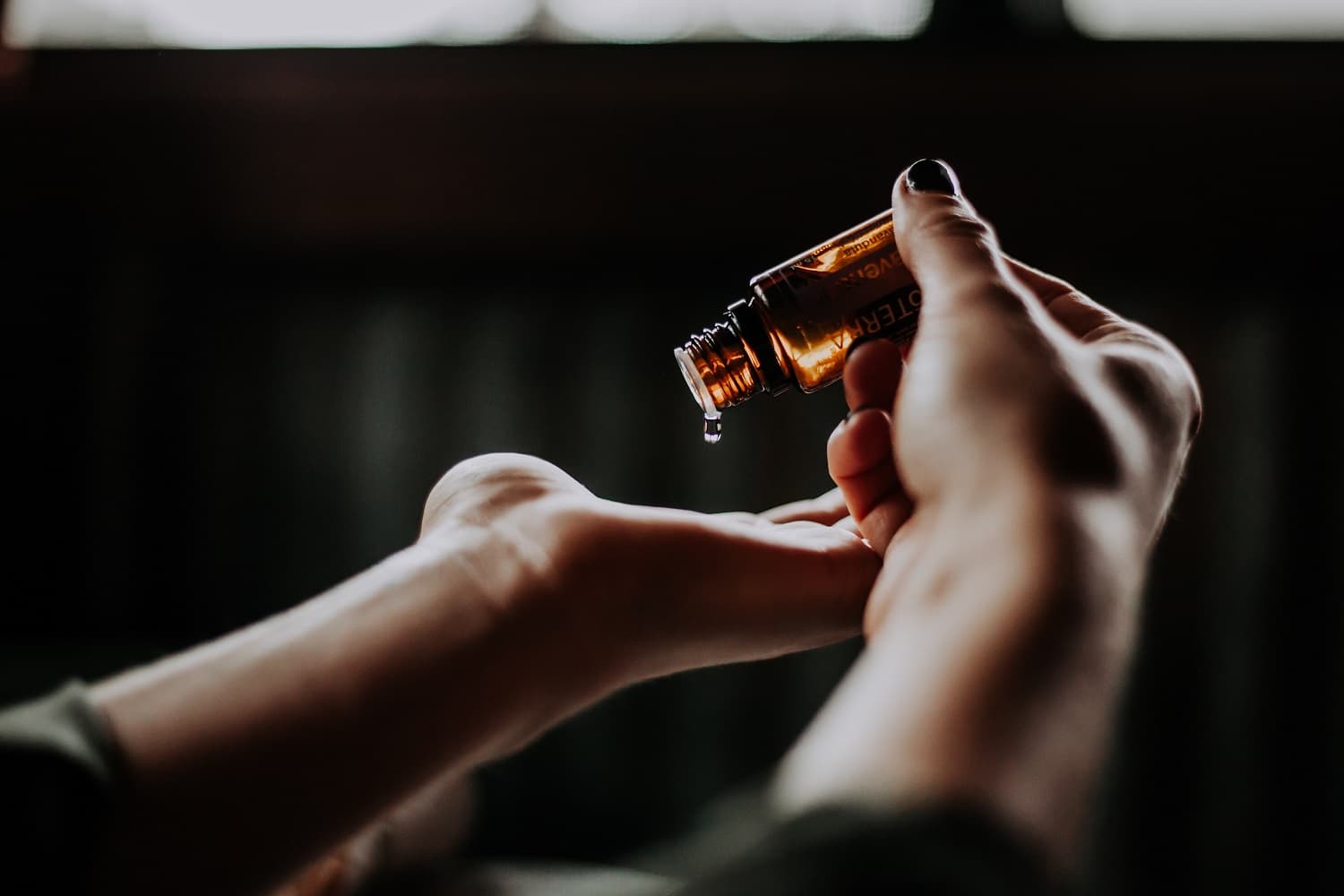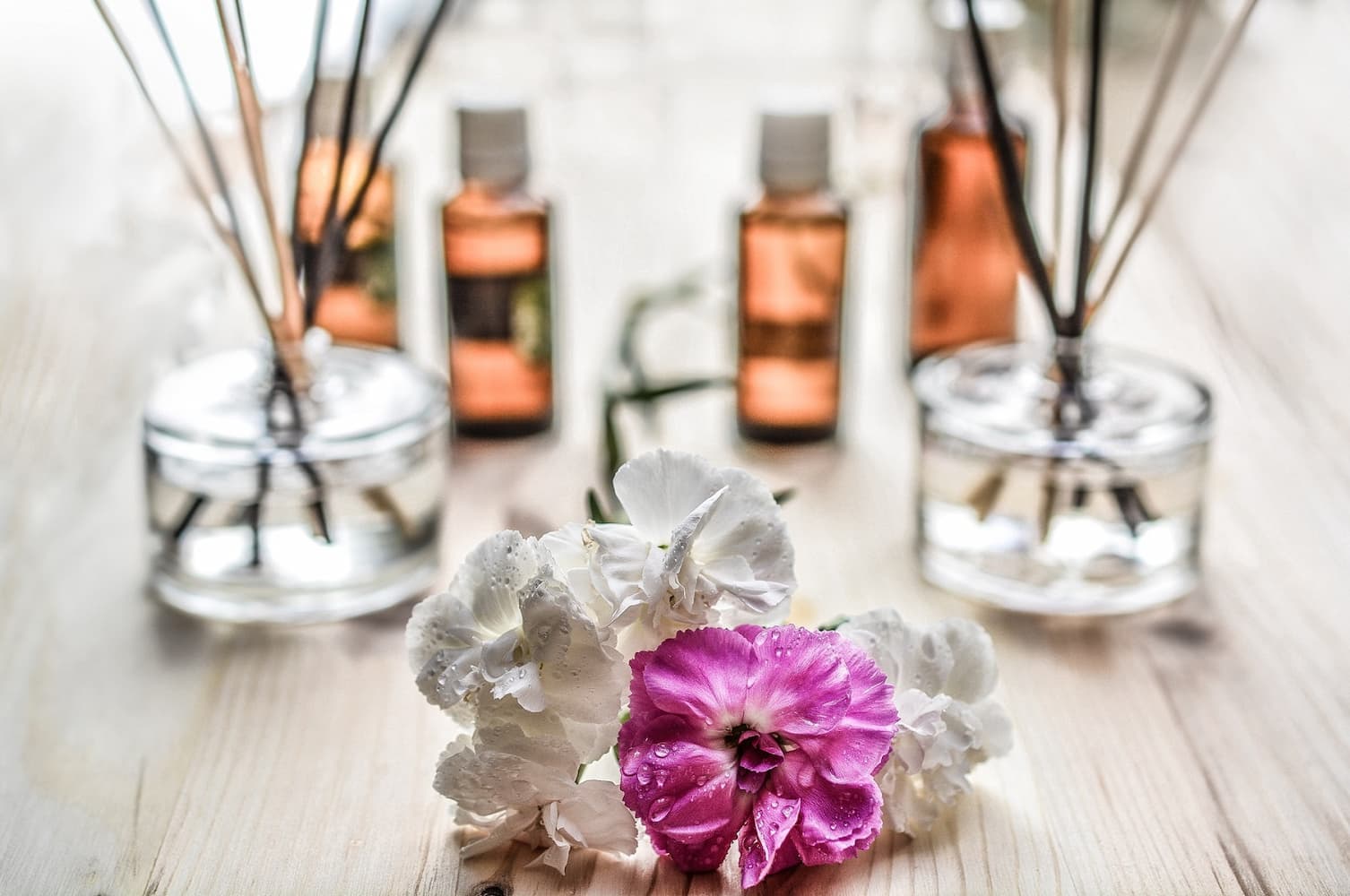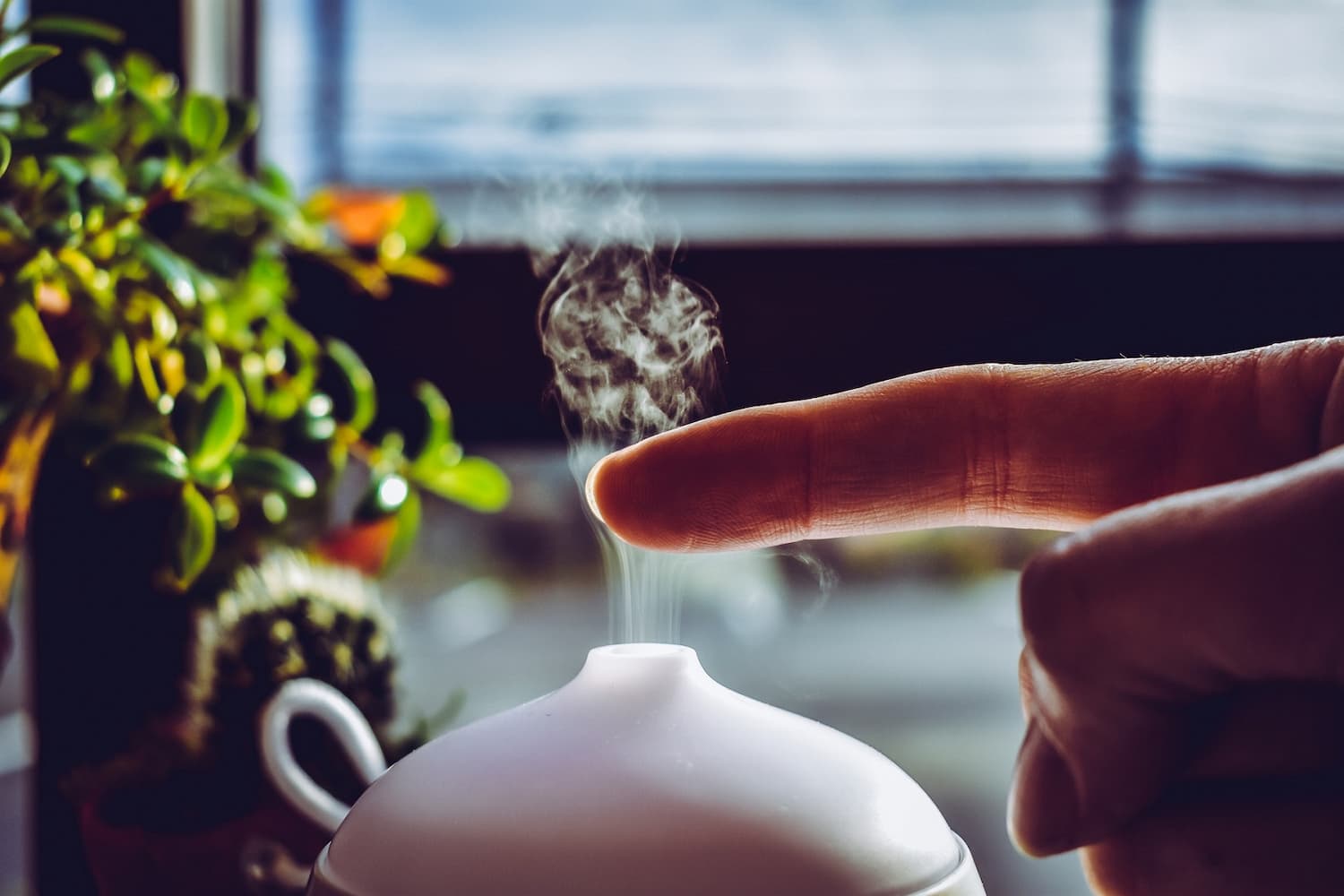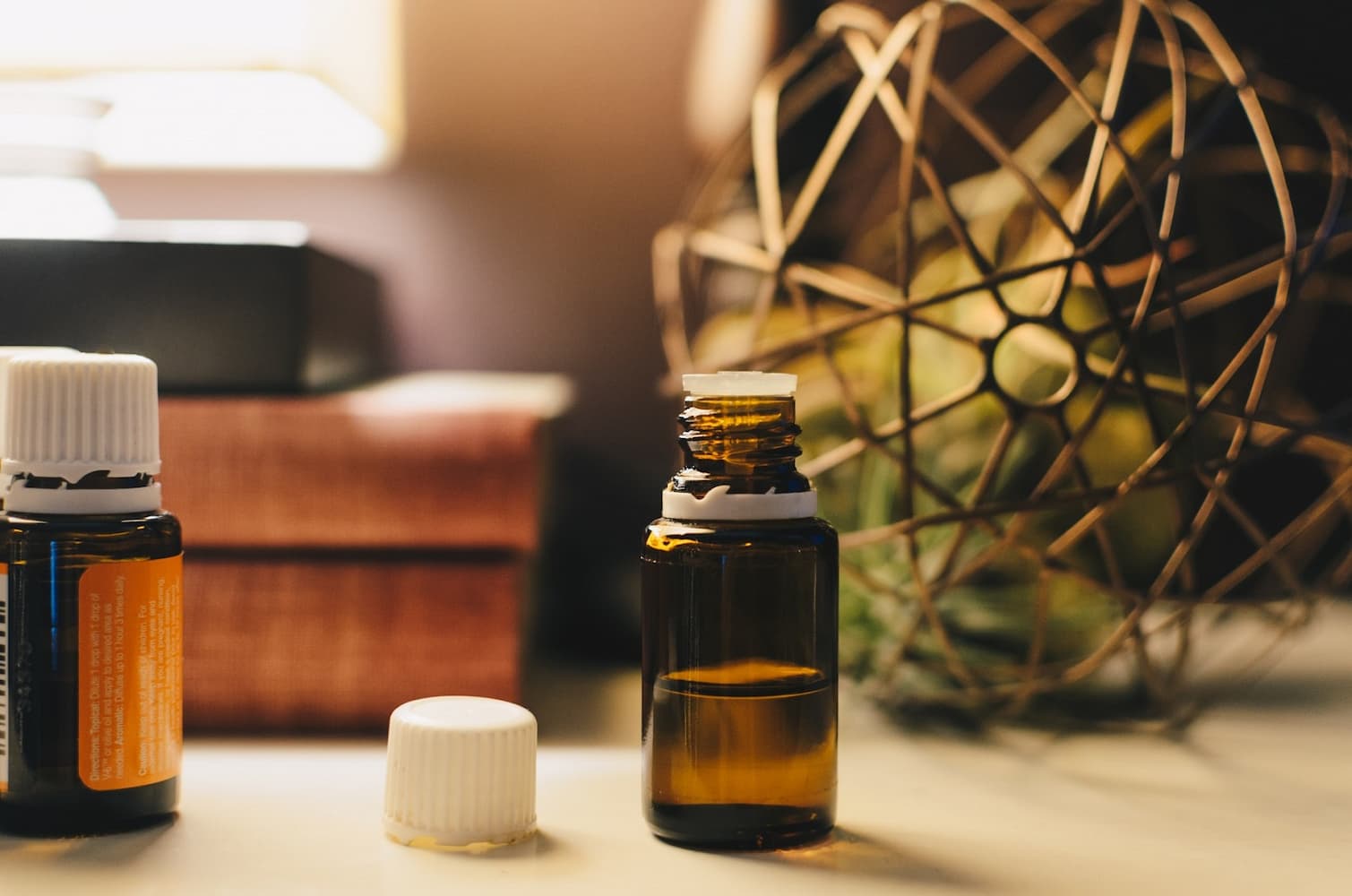
Do you love the idea of helping improve people's health and wellbeing using essential oils or massage? Are you seeking a rewarding career that will open your senses and allow you to work independently around your other commitments? If so, a career in aromatherapy might be just what the natural therapist ordered! Read on for more information about studying to be an aromatherapist.
What is Aromatherapy and Its Historical Roots?
Aromatherapy has been around for some 6000 years and involves the use of pure essential oils (fragrant plant extracts), usually through massage, inhalation, baths or compresses. Its roots can be traced to various ancient civilisations, including the Egyptians, Greeks, Chinese and Indigenous cultures of Australia. In these early societies, aromatic plants and their oils were valued for their medicinal, spiritual and cosmetic properties.
The Egyptians were known for their extensive use of essential oils in embalming and religious rituals. They used fragrant oils to honor their deities and believed that these aromatic substances had powerful healing abilities. Similarly, the Greeks integrated aromatherapy into their medical practices, with notable figures like Hippocrates exploring the therapeutic properties of essential oils.
In Australia, the indigenous communities have a long-standing tradition of using aromatic plants for both practical and ceremonial purposes. They would extract essential oils from native plants like eucalyptus and tea tree, using them for medicinal treatments and spiritual cleansing rituals.
Over time, aromatherapy techniques and knowledge were passed down through generations, with various cultures contributing to the development of this holistic healing practice. In the modern era, aromatherapy has gained widespread popularity, and its historical roots continue to influence the way essential oils are used and appreciated today.
As a holistic treatment, aromatherapy can have a profound effect on one's physical and psychological wellbeing. There exists the belief that scent, as the most enduring of our senses, has the power to transform our emotions and heal our bodies. The benefits of aromatherapy go beyond the physical as it can treat a wide range of emotional and mental conditions as well, including:
- Depression
- Stress and anxiety
- Insomnia
- Dementia
- Headaches and migraines
- Infections
- Digestive problems and weight loss
- Pain after cancer treatment
- Nausea
- Osteoarthritis of the knee
- Fatigue and burnout
- Eczema
- PCOS
Essential Oils and Their Therapeutic Properties
The heart and soul of aromatherapy are essential oils, each possessing its unique therapeutic properties and benefits. Derived from various parts of plants, such as leaves, flowers, roots and bark, these concentrated oils are packed with potent compounds that contribute to their healing effects on the body and mind.
One of the most well-known essential oils is lavender, renowned for its calming and soothing properties. It is often used to promote relaxation, relieve stress and aid in getting a restful night's sleep. Eucalyptus oil, on the other hand, is celebrated for its respiratory benefits and is commonly used to alleviate symptoms of congestion and colds.
Tea tree oil, native to Australia, has powerful antimicrobial properties and is frequently used to treat skin conditions like acne and fungal infections. Peppermint oil is prized for its refreshing and invigorating qualities, making it a popular choice for boosting energy and relieving headaches.
In aromatherapy, essential oils can be used individually or blended together to create synergistic effects. For instance, combining lavender and chamomile can create a calming blend to ease anxiety, while blending lemon and rosemary may enhance focus and concentration.
It is important to note that essential oils are highly concentrated substances and should be used with care. Before using any essential oil, it is advisable to consult a qualified aromatherapist or healthcare professional to ensure proper usage and avoid any potential adverse reactions.
Aromatherapy Techniques and Applications
Aromatherapy offers a versatile range of techniques for administering essential oils, each with its specific benefits and applications. Understanding these techniques and their appropriate use is crucial for maximising the therapeutic potential of aromatherapy.
Inhalation is one of the simplest and most effective methods of using essential oils. This can be done by adding a few drops of the oil to a diffuser or a bowl of hot water and inhaling the vapors. Inhalation allows the aroma to reach the olfactory system, influencing emotions and promoting relaxation or alertness.
Topical application involves diluting essential oils with carrier oils (such as almond or coconut oil) and applying the mixture directly to the skin. This method is commonly used for massage therapy, as well as for targeting specific areas of concern, like sore muscles or skin irritations.
Aromatherapy can also be experienced through bath soaks, where a few drops of essential oil are added to a warm bath. The steam and absorption of the oils through the skin create a rejuvenating and aromatic experience.
Diffusion, using an electronic diffuser, spreads the aroma of essential oils throughout a room. This method is ideal for creating a pleasant ambiance or purifying the air, especially during times of illness.
Regardless of the technique used, safety precautions must be observed. Some essential oils can cause skin irritation or adverse reactions, and certain oils may not be suitable for individuals with certain medical conditions. Proper education and guidance from a qualified aromatherapist can help ensure safe and effective use of essential oils.
Scientific Findings on Aromatherapy
Aromatherapy has gained significant attention in recent years, prompting numerous clinical trials and studies to explore its potential benefits. Let's take a closer look at some of the key findings from these evidence-based research studies.
-
Aromatherapy for Anxiety and Stress Reduction: Several studies have investigated the effects of aromatherapy on anxiety and stress levels. One notable clinical trial found that inhalation of lavender essential oil significantly reduced anxiety levels in patients undergoing dental procedures. Another study involving cancer patients undergoing treatment revealed that aromatherapy massage with a blend of essential oils reduced anxiety and improved overall mood. These findings suggest that aromatherapy may be a valuable complementary approach to managing stress and anxiety in various healthcare settings.
-
Aromatherapy for Sleep Improvement: Sleep disorders affect a large portion of the population, and aromatherapy has been explored as a potential solution for improving sleep quality. A clinical trial focusing on postpartum women with insomnia showed that using an aromatherapy blend containing lavender and bergamot oils led to better sleep and reduced symptoms of depression. Additionally, studies conducted on elderly individuals with sleep disturbances reported improvements in sleep patterns and overall wellbeing following aromatherapy interventions. These studies highlight the potential of aromatherapy as a non-pharmacological option to promote restful sleep.
-
Aromatherapy for Pain Management: Chronic pain is a complex and challenging condition to treat, and aromatherapy has been studied for its potential analgesic effects. Research in this area indicates that aromatherapy massage using essential oils like ginger, eucalyptus and peppermint can help alleviate pain in conditions such as osteoarthritis and musculoskeletal injuries. Furthermore, aromatherapy has shown promise in reducing labour pain and discomfort during childbirth, with studies reporting decreased pain intensity and increased satisfaction in mothers who received aromatherapy interventions.
-
Aromatherapy in Cancer Care: Cancer patients often face various physical and emotional challenges during their treatment journey. Clinical trials exploring the role of aromatherapy in cancer care have demonstrated positive outcomes, including reduced chemotherapy-induced nausea and vomiting. Essential oils such as ginger, peppermint and lemon have been used in these trials to provide supportive care and improve the overall wellbeing of patients undergoing cancer treatments.
Working as an Aromatherapist
An aromatherapy practitioner combines essential oils and massage with other techniques, such as inhalation, to help their clients improve their health and wellbeing. Aromatherapy is often used in conjunction with mainstream medicine to help treat common colds and flu, insomnia, nausea, skin conditions, migraines and headaches, and many other ailments. Aromatherapy is relatively easy to deliver once you have mastered the basics.
In terms of employment, you may work independently in private practice or with other natural health practitioners in a multidisciplinary clinic, a community healthcare centre, a wellness hub, or at a spa. You may also opt to become an essential oils manufacturer or a sales representative for a natural health and wellness shop. Many aromatherapists hold expertise in other holistic healing modalities, such as massage therapy and naturopathy, to broaden their skills and offer more services to their clients. Online consultations are also provided by some practitioners.

The Essential Skills Every Aromatherapist Must Have
One doesn't become an aromatherapist to simply satisfy their curiosity of vegetable oils. The practice of aromatherapy is deeply rooted in the desire to alleviate the pain and suffering of others as well as improve the quality of their life using different oils for healing. An aspiring aromatherapist doesn't have to be knowledgeable about aromatherapy and its applications, as these can be learnt and assimilated at school.
What they need to have in order to succeed are interpersonal skills and active listening skills. Perhaps anyone who practises complementary therapies, or who has long established their natural therapy business, will agree that empathy and compassion are what got them to where they are today.
In addition to having the heart to help others, undertaking training in aromatherapy with an accredited school is no doubt the key to establishing a rewarding career in aromatherapy.
Aromatherapy Study Options
Currently, there are no governing regulations that you need to adhere to if you want to practice aromatherapy in Australia. However, it is always a good idea to enrol in accredited aromatherapy courses to learn the energetic properties of aromatherapy oils and different aromatherapy techniques as these will lay the foundation of your career. You can start with an online aromatherapy certification program or a diploma course to equip yourself with the basics, and then pursue an advanced course later on to deepen your knowledge of aromatherapy.
There are many aromatherapy courses available in Australia that you can take on-campus or online. If you're planning to study for a higher qualification, make sure that the course you choose covers a variety of subjects, including the history of aromatherapy, common essential oils, methods of extraction, blending techniques and how to safely store and handle the oils.
Studying aromatherapy massage offers many advantages, too, especially if massage therapy happens to be your area of specialisation. It's a therapeutic approach for a wide range of physical health conditions and mental health issues, so proficiency in this modality will surely increase your client base in no time.



Choosing the Best School for Aromatherapy
When scouting for a course provider, make sure to look at the background of the top 5 schools on your list. You want them to be nationally recognised and affiliated with the relevant organisations. Once you're sure that you're dealing with qualified institutions, you can then proceed to compare their aromatherapy certification courses and diploma programs to find your best match.
Besides exploring their curriculum, you want to enquire about each course provider's faculty members to ensure that you'll be getting quality education and training from the best trainers in the industry. We recommend calling the school and addressing all of your concerns to a course advisor. They will be able to explain everything to you in detail, including their available payment plans and potential aromatherapy career opportunities that await you should you decide to study with them.
Questions to Consider
Before enrolling on a course to study aromatherapy, it is wise to run through some practical issues and considerations to ensure that you have all the necessary information and are sure of your intended vocation. These include:
- Do you know what it entails to be a practising aromatherapist?
- What is the full cost of the course being offered?
- Is the study full or part-time, or available via distance learning?
- Is the institution reputable?
- What career opportunities are available to me after graduating?
- What level of income can I expect?
Once you're all set to study aromatherapy, head over to the Natural Therapy Pages' comprehensive listing of Australia's top schools that guarantee a high standard of training.
|
Do you have a natural health & wellness business? |